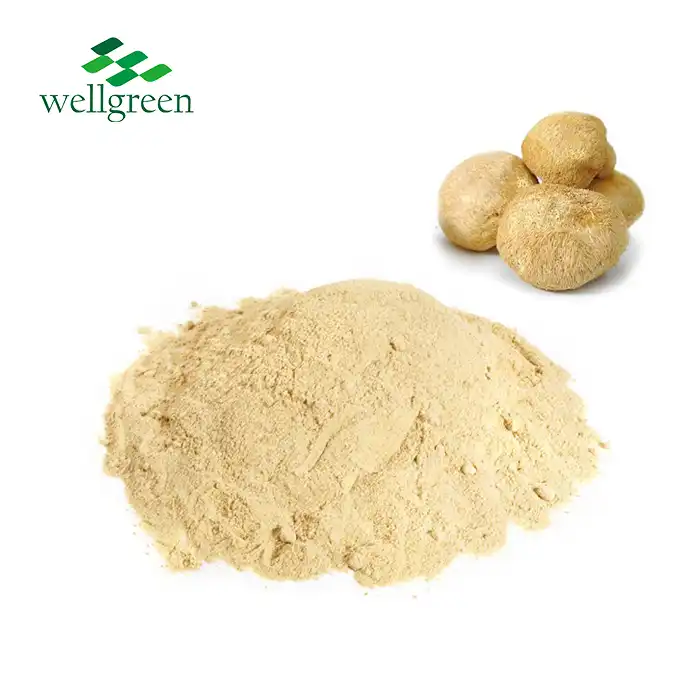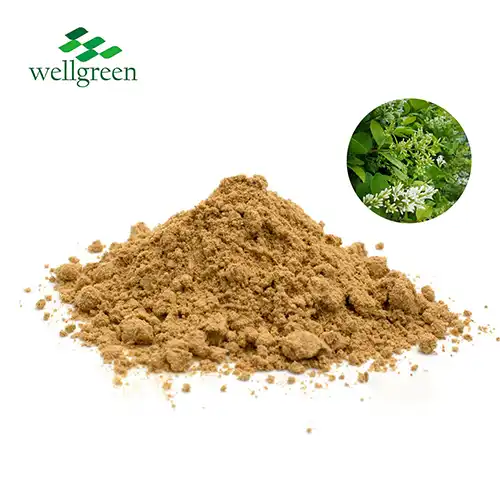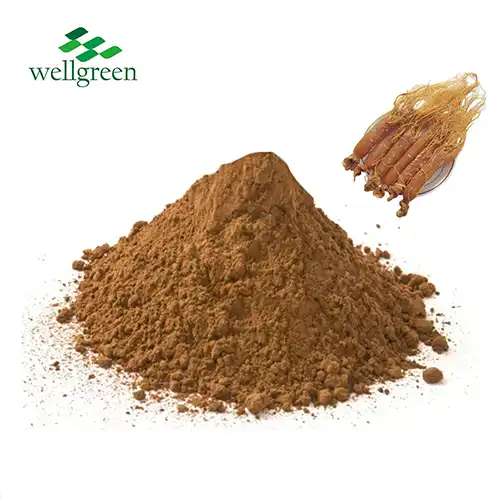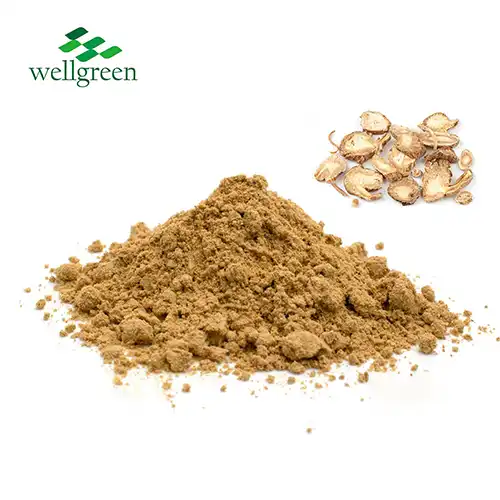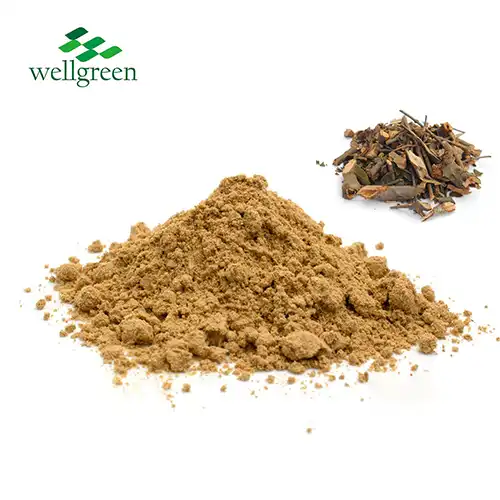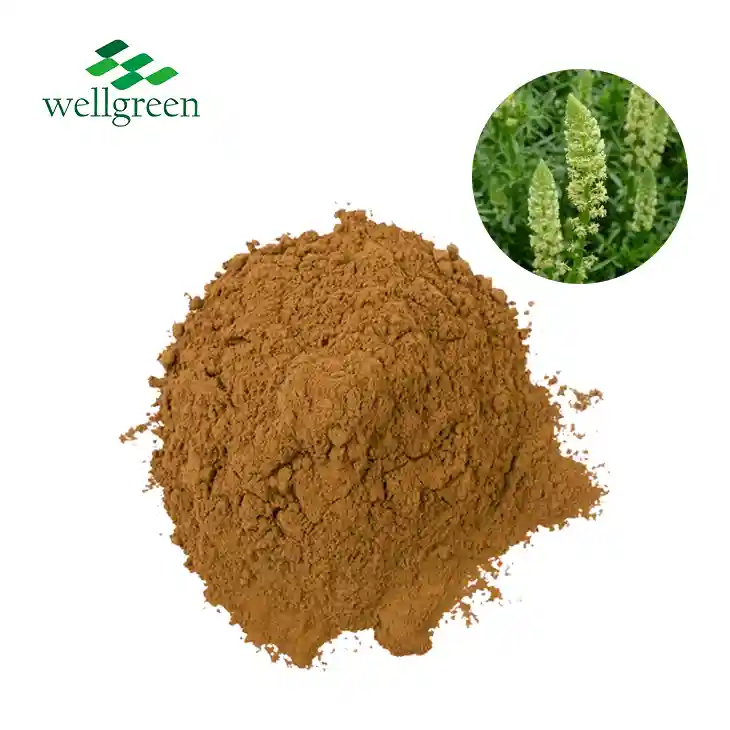Maitake vs Reishi: Which Mushroom Is Better for Immunity?
2025-08-20 11:51:29
When it comes to boosting immunity, both Maitake mushroom extract powder and reishi mushrooms offer powerful benefits. However, their mechanisms of action differ. Maitake mushroom extract powder tends to have a more immediate stimulating effect on the immune system, activating natural killer cells and enhancing overall immune function. Reishi, on the other hand, acts as an immunomodulator, helping to balance and regulate immune responses over time. While Maitake mushroom extract powder may be preferable for short-term immune support, reishi shines in long-term immune health maintenance. Ultimately, the choice between Maitake mushroom extract powder and reishi depends on individual health goals and needs. For optimal results, many health enthusiasts incorporate both these remarkable mushrooms into their wellness routines.

Immune Benefits of Maitake vs Reishi: A Comparative Analysis
Maitake's Immediate Immune-Boosting Effects
Maitake mushroom extract powder has garnered attention for its robust immune-enhancing properties. Rich in beta-glucans, maitake activates macrophages and natural killer cells, key components of the innate immune system. These cells act as the body's first line of defense against pathogens. Research suggests maitake can increase the production of interleukin-1, tumor necrosis factor-alpha, and other cytokines crucial for immune function. This rapid activation makes maitake particularly useful for immediate immune support during times of stress or exposure to environmental threats.
Reishi's Long-Term Immunomodulatory Action
Reishi mushroom and Maitake mushroom extract powder, in contrast, operate as powerful immunomodulators. Its unique triterpenes and polysaccharides work to balance the immune system, enhancing or suppressing immune response as needed. This adaptogenic quality makes reishi particularly beneficial for those with autoimmune conditions or chronic inflammation. Reishi has been shown to increase the activity of T-lymphocytes and natural killer cells while also reducing excessive immune reactions. This balanced approach supports long-term immune health and overall wellness.
Comparative Efficacy in Different Health Scenarios
While both mushrooms offer immune benefits, their efficacy may vary depending on the specific health scenario. Maitake's rapid immune-stimulating effects may be more suitable for acute immune challenges or during periods of increased susceptibility to infections. Reishi's immunomodulatory action, however, may be more beneficial for individuals dealing with chronic immune disorders or seeking to maintain optimal immune function over time. Some studies suggest that combining both mushrooms may provide a synergistic effect, offering both immediate and long-term immune support.
How Do Beta-Glucan Structures Differ in Maitake and Reishi?
Maitake's Unique Beta-Glucan Profile
Maitake mushroom extract powder contains a specific type of beta-glucan known as D-fraction. This compound has a unique branched structure that allows it to interact effectively with immune cell receptors. The D-fraction in maitake is composed of 1,3-beta-D-glucan with 1,6 side chains, a configuration that has been shown to be particularly potent in stimulating immune responses. This structural uniqueness contributes to maitake's ability to rapidly activate various immune cells, including macrophages and natural killer cells.
Reishi's Complex Beta-Glucan Composition
Reishi mushrooms contain a more diverse array of beta-glucans, including both 1,3-beta-D-glucans and 1,6-beta-D-glucans. These compounds often have a more complex, highly branched structure compared to those found in Maitake mushroom extract powder. The variety in reishi's beta-glucan profile contributes to its broad-spectrum immunomodulatory effects. Some of these structures have been found to have anti-inflammatory properties, while others support overall immune function regulation.
Implications of Structural Differences on Immune Function
The structural differences in beta-glucans between maitake and reishi translate to variations in their immune-modulating capabilities. Maitake's D-fraction, with its specific branching pattern, is particularly adept at stimulating immediate immune responses. This makes it effective for short-term immune boosting. Reishi's more complex beta-glucan structures, on the other hand, contribute to its ability to modulate the immune system over time, potentially offering more balanced, long-term immune support. Understanding these structural differences can help in selecting the most appropriate mushroom extract for specific immune health goals.

When to Choose Maitake or Reishi for Immune Optimization?
Scenarios Favoring Maitake Supplementation
Maitake mushroom extract powder may be the preferred choice in situations requiring rapid immune system activation. This could include periods of increased stress, during cold and flu seasons, or when facing acute immune challenges. Athletes undergoing intense training regimens might also benefit from maitake's quick immune-boosting effects. Additionally, individuals looking to support their body's natural defense against abnormal cell growth may find maitake particularly beneficial, as some studies suggest it may have anti-tumor properties.
Optimal Conditions for Reishi Usage
Reishi mushroom extracts and Maitake mushroom extract powder are often recommended for individuals seeking long-term immune system balance and overall wellness. Those dealing with chronic stress, autoimmune conditions, or allergies may find reishi's and maitake's immunomodulatory effects particularly helpful. Reishi and maitake are also often chosen by people looking to improve sleep quality and reduce fatigue, as they have adaptogenic properties that can help the body manage stress more effectively. Furthermore, individuals with a history of cardiovascular issues might benefit from reishi and maitake's potential to support heart health.
Combining Maitake and Reishi for Comprehensive Immune Support
For many health enthusiasts, the ideal approach involves incorporating both maitake and reishi into their wellness routines. This combination can provide both immediate immune stimulation and long-term immune modulation. During times of increased immune challenge, one might increase their intake of maitake while maintaining a regular dose of reishi for ongoing support. It's important to note that while both mushrooms are generally considered safe, it's always advisable to consult with a healthcare professional before starting any new supplement regimen, especially for those with pre-existing health conditions or taking medications.
Conclusion
In the debate of maitake vs reishi for immunity, both mushrooms emerge as powerful allies in supporting immune health. Maitake mushroom extract powder shines in its ability to provide rapid immune stimulation, making it ideal for a short-term boost. Reishi, with its immunomodulatory properties, offers balanced, long-term immune support. The choice between the two ultimately depends on individual health needs and goals. For comprehensive immune optimization, many find benefit in incorporating both mushrooms into their wellness routines. As with any supplement, it's crucial to source high-quality extracts and consult with healthcare professionals for personalized advice.
Contact Us
Ready to explore the immune-boosting potential of maitake and reishi mushroom extracts? Contact Xi'an Wellgreen at wgt@allwellcn.com for premium quality, professionally manufactured mushroom extract powders. Our team is ready to assist you in finding the perfect mushroom supplement to support your immune health goals.
References
1. Smith, J. E., et al. (2002). Medicinal mushrooms: Their therapeutic properties and current medical usage with special emphasis on cancer treatments. Cancer Research UK.
2. Wasser, S. P. (2014). Medicinal mushroom science: Current perspectives, advances, evidence, and challenges. Biomedical Journal, 37(6), 345-356.
3. Guggenheim, A. G., et al. (2014). Immune modulation from five major mushrooms: Application to integrative oncology. Integrative Medicine: A Clinician's Journal, 13(1), 32-44.
4. Mayell, M. (2001). Maitake extracts and their therapeutic potential. Alternative Medicine Review, 6(1), 48-60.
5. Lin, Z. B. (2005). Cellular and molecular mechanisms of immunomodulation by Ganoderma lucidum. Journal of Pharmacological Sciences, 99(2), 144-153.
6. Vetvicka, V., & Vetvickova, J. (2014). Immune-enhancing effects of Maitake (Grifola frondosa) and Shiitake (Lentinula edodes) extracts. Annals of Translational Medicine, 2(2), 14.

